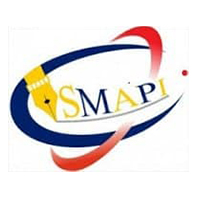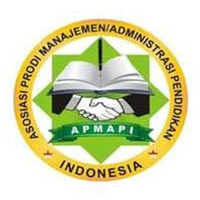THE ROLES OF SCHOOL OPERATORS IN MANAGING INFORMATION DATA AS GUARANTORS OF THE QUALITY OF EDUCATION SERVICES
Mahsur dan Margana Mahsur dan Margana Mahsur dan Margana, Universitas Negeri Yogyakarta, Indonesia
Abstract
Keywords
Full Text:
PDFReferences
Creswell, J. W. (2016). Research Design: Pendekatan Metode Kualitatif, Kuantitatif dan Campuran. Edisi Keempat (Cetakan Kesatu). Pustaka pelajar.
Kars, M., Inandi, Y. (2018). Relationship between school principals' leadership behaviors and teachers' organizational trust. Eurasian Journal of Educational Research, 74, 145-164. doi:10.14689/ejer.2018.74.8.
Kassim, Y. M. (2011). The Relationship between Remuneration and The Performance Of Non-Teaching Staff in Public Secondary Schools in Mandera East District, Kenya. (Thesis). Kenyatta University
Manning, G., Curtis, K. (2003). The Art of Leadership. New York : McGraw-Hill.
Mehdinezhad, V., Mansouri, M. (2016). School principals' leadership behaviours and its relation with teachers' sense of self-efficacy. International Journal of Instruction, 9(2), 51-60. Retrieved from https://files.eric.ed.gov/fulltext/EJ1106336.pdf
Miles, M.B, Huberman, A.M, & Saldana, J. (2014). Qualitative Data Analysis, A Methods Sourcebook, Edition 3. USA: Sage Publications. Terjemahan Tjetjep Rohindi Rohidi, UI-Press.
Nyoman, P., Putu, P. S., Ratih, A. (2018). Belajar dan Pembelajaran. PT Rajagrafindo Persada.
Ogunyemi, J. K., Adewole, J. A, & Akinde, J.A. (2019). Employees’ remuneration and performance in Nigerian Breweries plc. International Journal of Business and Management Future, 3(1), 1-8. https://doi.org/10.46281/ijbmf.v3i1.263
Usman, H., (2011). Manajemen: Teori, Praktik, dan Riset Pendidikan. Jakarta: Bumi Aksara
Widyastuti, M., Arikunto, S. (2015). Dinamika Kepemimpinan Kepala Sekolah dalam Mengembangkan Sekolah Efektif di SD Kanisius Kadirojo, Sengkan, Duwet. Jurnal Akuntabilitas Manajemen Pendidikan, 3(1), 82-96.
Zulfan, M., Murcahyanto. (2021). Gaya Kepemimpinan Kepala Sekolah sebagai System Control dan Pengaruhnya terhadap Kinerja Operator Sekolah Dasar. Jurnal Basicedu Research & Learning Elementary Education, 5 (6), 6005-6010.
DOI: https://doi.org/10.21831/jump.v5i2.64375
Refbacks
- There are currently no refbacks.
Copyright (c) 2024 Jurnal Manajemen Pendidikan: Jurnal Ilmiah Administrasi, Manajemen dan Kepemimpinan Pendidikan
This work is licensed under a Creative Commons Attribution-ShareAlike 4.0 International License








